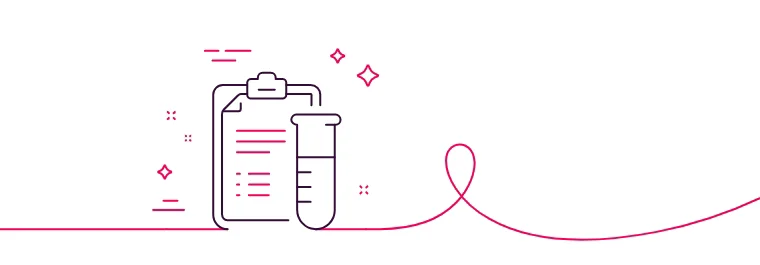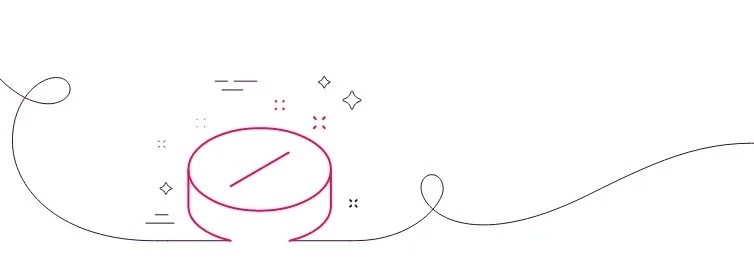
Technology as a way to reduce drug counterfeiting
The following text is a transcript of a presentation given by Szymon Kania - CEO & co-founder of WebMakers Software House, during MeetUp MedTech in Zabrze, May 31, 2023.
What are counterfeit drugs anyway? Counterfeit drugs are manufactured and packaged to look like legitimate drugs, but often contain less or no active ingredients. Counterfeit drugs pose a great threat to unsuspecting patients. In some cases, they may simply not meet a therapeutic need. In the worst case, they may contain dangerous substances that are poisonous to humans. According to Interpol records, some of the counterfeit drugs contain mercury, arsenic, rat poison or cement.
1 in 10 medicinal products on the market do not meet quality standards or are counterfeit. - According to the WHO, about 10 percent of all pharmaceuticals sold are counterfeit or contain a lower dose of active substances. The problem is most common in developing countries in Latin America, Africa and Asia. The global counterfeit drug market is estimated to be worth around $200 billion - slightly less than the entire GDP of e.g. Greece ($214.9 billion - 2021) or slightly more than the GDP of Hungary ($181.8 billion - 2021). Also, according to WHO - in Poland, every hundredth drug is counterfeit, and Poles spend about PLN 100 million annually on counterfeit drugs.

Unfortunately, in this case there is no perfect solution or a single way that would make the problem of counterfeit drugs disappear completely. Countries are constantly fighting this practice in various ways - by the actions of the authorities and an attempt to liquidate criminal groups, or by using other methods and imposing various requirements on pharmaceutical companies in this regard. In Poland, for example, it is an obligation to serialize drugs.
I would like to introduce you to a concept that can further reduce the problem of drug counterfeiting by using blockchain technology and smart contracts. It can be said that it is a kind of extension of the functioning drug serialization.
The idea is that the assigned drug ID can be used to track it throughout the supply chain. This number is stored in a known, public blockchain (e.g. Ethereum), where it cannot be changed or deleted. Shipping companies, warehouses and wholesalers record the location of a specific drug in order to verify its origin (for example, using vision cameras or RFID chips). In this way, the drug can be tracked from the factory all the way to the pharmacy.
When a patient picks up a drug from a pharmacy, the sale can also be recorded on the blockchain. This creates a complete digital record of drug distribution. And going further, you can enter a QR code on the package, which will easily allow the patient to view this record and make sure that the medicine they buy is genuine.
Smart contracts
The whole concept can go much further. Earlier, I mentioned smart contracts, which can be said to be small programs that run directly on the blockchain. With their use, you can introduce a number of automations and additional security in the supply chain, e.g. store funds and release them when the delivery is made, ensuring faster payments between companies participating in the entire supply chain. But it can also automatically condition payments on timeliness or even the method of storing and transporting medicines.
For example, some pharmaceutical products must be stored in the right conditions at all times, maintaining the right temperature. Blockchain combined with IoT allows for even more credibility and automation of the verification process. Inside containers or trucks carrying pharmaceuticals, you can place sensors connected to the Internet that will regularly record the temperature and send these readings to a smart contract that will record them in the blockchain. What if the temperature reading exceeds a certain threshold? For example, a smart contract can send an automatic alert to a transport company to take action. And if the high temperature lasts long enough for the batch of drugs to be destroyed - the smart contract can mark the entire batch as defective and even withhold payment to the shipping company for that shipment.

Summary
From the point of view of consumers, and in fact patients, the fight against counterfeit medicines is very important. Is it also important for drug-producing corporations? They certainly want to sell original products, but from our first interactions with such companies on the local market, it can be concluded that they find such technologies interesting, but until the legislator forces them, for example with the required serialization, they do not want to invest more in fighting this problem.
I hope this post will inspire someone, maybe there is a place for an interesting startup here. After all, startups are supposed to change the world, and there is a huge scope for action in this area.
Questions asked during the presentation and answers.
I love blockchain and I don't know if you took it into account that at some stage there is human participation. Is there a chance that someone can add or change labels to a given transport that will not be correct?
This is not a magical solution to the problem and such situations theoretically can happen. This concept is another obstacle to the activities of groups producing fake drugs. Even if we reduce this practice by a few percent, it translates into a large number of people saved. The things you are talking about can of course be better secured in the future. The current tendency is to exclude the human factor where possible, through the automation and robotization of operations. We participate in projects where, for example, we automate warehouses using robots and we optimize their paths around the warehouse. And this will surely evolve even more in the future.
I can imagine making public the supervision of the supply chain from the producer to the consumer, i.e. routes, storage method, storage parameters. However, I cannot imagine making the supply chain from the suppliers of individual components to the manufacturer public, i.e. revealing the formulas and the way of using raw materials on the production floor.
This concept assumes supervision from the moment when the drug leaves the factory, not when we collect the raw materials. Although there is certainly room for forgery as well. In the presented concept, a ready drug is at the stage of the supply chain, e.g. during shipping, in a warehouse or at a wholesaler, and it is there where it can be replaced with a non-original drug. Of course, what you are talking about can also be a significant problem, but I do not know the statistics here and I can hardly see a specific solution to this problem, because in fact it could be at least partial disclosure of formulas and here all pharmaceutical companies will be reluctant to such a solution.

Congratulations on an interesting presentation and taking up the problem. I do not really understand this problem, because it is known that the entire health service, especially when it comes to deliveries, operates on the basis of certain standards, including ISO. They are based on transparency. The whole advantage of the quality standard is that the company that receives the product must document that it has received it from a given supplier and that it meets specific quality requirements. Blockchain denies this transparency. I congratulate the idea anyway, because I thought it would go towards the medicine, its features and showing the risk. By counterfeiting a product, various details are changed - colors, shape, weight, solubility. Perhaps there are some simple features that will eliminate counterfeit drugs. A very interesting domain and I hope you will be able to implement this idea.
Regarding blockchain, it is not a denial of transparency, on the contrary - we can all enter and read what is written in it. At the same time, the whole idea excludes that someone can delete or edit data by falsifying it. That is why it is important to use blockchain in this concept, because if it was done, for example, on the basis of the internal IT system of a given pharmaceutical company or even government regulations, such as serialization, credibility would certainly be lower and there would be room for incorrect modifications and fraud in this place.
Of course, the issue of standardization and certification is also a solution that has a (positive) impact on the whole aspect, but although it is common, according to WHO statistics, this problem still seems huge. The problem occurs to a lesser extent in Poland, for example, and more in developing countries, e.g. in Asia or Africa, and it can be said that these countries skew global statistics. There is no single method that is responsible for reducing the falsification of medicines - it is a component of many factors.
You covered all the logistics - from the manufacturer to the pharmacy system. And what to do with the system of drugs that are available on the Internet, cheap online pharmacies, which are used, for example, by less affluent people? There is no control or verification over this.
This concept could also be implemented in online pharmacies, where it would be automatically verified or the end customer could read the code, the entire digital record and see what the supply chain of the purchased medicine looked like. Here the question remains how reliable the pharmacy is. There could be a problem of counterfeiting the drug by using the original QR code, but we are talking about such situations rather in the case of pharmacies with no reputation and low credibility. Fighting such pharmacies is a bit like fighting pirate websites. There are appropriate laws or copyright protection, but such services still exist and probably will exist. It's like fighting windmills. As I mentioned earlier, it is important to try to limit this practice more and more, not focusing only on looking for a solution that will make the problem of counterfeit drugs disappear completely, because - unfortunately - it seems to me that there is no and there will be for a long time such a solution.









